IISE’s Paul Stewart, Chair in Energy and Environment will be a featured speaker at Linear Power 2015, and presenting on the novel aspects of his work in four-stroke, zero-constraint, linear generators. Prof Stewart developed the engine in collaboration with Lotus Engineering as part of the EPSRC funded project “Zero Constrain Free Piston Energy Converter” […]
Lotus Engineering
Quasi-Constant Volume (QCV) Spark Ignition Combustion on the Free-Piston Engine Rig
Tweet SAE World Congress & Exhibition – 2009 Quasi-Constant Volume (QCV) Spark Ignition Combustion Paper Number: 2009-01-0700 DOI: 10.4271/2009-01-0700 Citation: Chen, R., Winward, E., Stewart, P., Taylor, B. et al., “Quasi-Constant Volume (QCV) Spark Ignition Combustion,” SAE Technical Paper 2009-01-0700, 2009, doi:10.4271/2009-01-0700. Author(s): Rui Chen – Loughborough Univ Edward Winward – Loughborough Univ Paul Stewart – University of Lincoln […]
Control Techniques re-commission the Lotus experimental engine
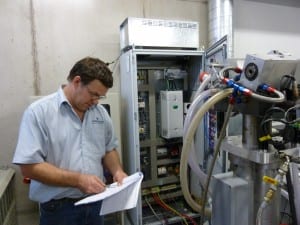
The rotary electrical drive on the Lotus free-piston experimental engine has now been re-commissioned by an engineer from Control Techniques.
The rig is now ready to be transported from the ThinkTank to its new home in an engine test cell in the new building.
The engine is part of a long-term R&D programme into new engine technologies and combustion control techniques led by Prof Paul Stewart, in collaboration with Lotus Engineering in Norwich.
The programme is looking at advanced drive trains for Hybrid Electric vehicles.
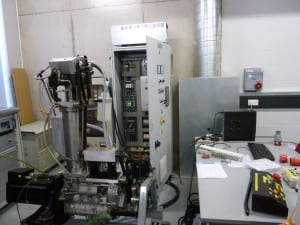
The CT drive supplies the Emerson 15kW Permanent Magnet AC Motor (PMAC) which is coupled to the crankshaft and acts as a motor-generator to control piston trajectory when the linear free piston engine is tethered to the crankshaft.
Recommissioning the Lotus Experimental Free-Piston Engine
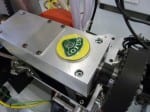
Now that the Free-Piston engine is back at the ThinkTank, the electrical drive to the main crankshaft servo will be re-commissioned by Control Techniques Ltd.
The Engine has been away for a while having a new linear electrical motor-generator fitted, and is now ready for electrical re-comissioning before we move it into it’s test-cell in the new School of Engineering building.
The engine is unique, in that it allows piston trajectory control for experimentation on both conventional (with crankshaft) and free-piston (linear electrical machine, no crankshaft) operation.
After re-commissioning and installation in the new building, Prof Stewart will be continuing research into fundamental combustion, multi-fuel operation with variable compression ratios and free-piston operation in collaboration with Dr Jill Stewart, Reader in Thermofluids.
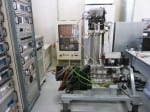
Going ‘Green’ doesn’t have to be boring…..
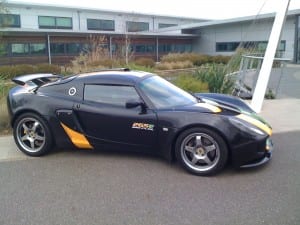
A while back, I was over at the Lotus Engineering Centre in Hethel, giving an IMechE sponsored talk on
Integrating Technologies for Low Carbon Vehicles
Lotus had laid on a display of a selection of their ‘Future Technologies’ vehicles, all of which concentrate on aspects of the green automotive agenda.
Lotus Exige Biofuel
The Lotus Exige Biofuel pictured runs on E85 biofuel which is an 85% Ethanol blend derived from bio-crops. Although Brazil has traditionally been the world-leader in this approach, it has recently been overtaken by the US. The approach does have some drawbacks however. In a by-volume comparison, E85 has 30% less energy potential than conventional gasoline. Critics have proposed that a net energy loss may result when the entire supply chain from starchy plant to vehicle is taken into account.
The 265E pictured here started its life as a standard Exige, but with the addition of larger fuel injectors and modifications to the supercharger, the vehicles engine management system has been adapted so that it can switch between conventional gasoline and E85.

Lotus ECO Elise
Also on show was the ECO Elise project, which concentrates on green technologies applied to the whole vehicle. The body panels are composites manufactured from sustainable materials such as Hemp. The dark brown stripe on the bonnet has been left unpainted and merely lacquered, to show off the bio-material making up the body panels. This approach extends to water-based body paint and minimisation of energy expended in manufacture.
A nice touch is the solar panels embedded into the hemp composite of the roof material.
Future Thinking
More information about these and more innovative projects can be found at
http://www.lotuscars.com/engineering/en/future-thinking
Lotus and Lincoln
Lincoln’s School of Engineering has a long history of performing collaborative research projects with Lotus Engineering, from novel powertrain design for hybrid vehicles, to providing consultancy services to organisations such as the Carbon Trust and ITI Energy.